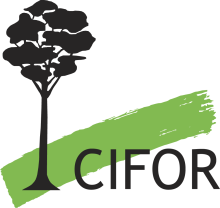Resource information
This practitioner’s guide explains how to promote gender-responsive forest tenure reform in community-based forest regimes. It is aimed at those taking up this challenge in developing countries. There is no one single approach to reforming forest tenure practices for achieving gender equality and women’s empowerment. Rather, it involves taking advantage of opportunities that emerge in various institutional arenas such as policy and law-making and implementation, government administration, customary or community-based tenure governance, or forest restoration at the landscape scale. This sourcebook provides multiple forms of guidance from: conceptual ideas, operational direction, good practices, case-study insights, research findings and resources for further exploration from across Africa, Asia and Latin America. It is designed to support a wide range of practitioners, women and men, from a range of institutions such as government offices, non-governmental organizations, civil society organizations, donor agencies, women’s organizations, as well as networks and federations. This includes gender experts who are responsible for the integration of gender equality and women’s empowerment in their respective organizations, and also those working broadly in the world of land tenure, forest tenure and governance, forest landscape restoration, agroforestry, value-chain development and social impact enterprises. The goal is to journey along the pathways to forest tenure reform through a three-step process: Analyze, Strategize and Realize. Focused diagnostic analysis to create an empirical foundation for change can support the design of sequential interventions to promote gender-responsive forest tenure reform at various scales. To this end, the guide is a timely resource to support high-impact interventions suited to accelerating change within the national and local context in community-based forest tenure regimes. Contents Acknowledgments and The Practitioner’s Guide in a nutshell Gender-responsive accelerators for forest tenure reform With gender in mind: Forest tenure policy, legal reform and government administration Gender matters in community-based forest tenure



